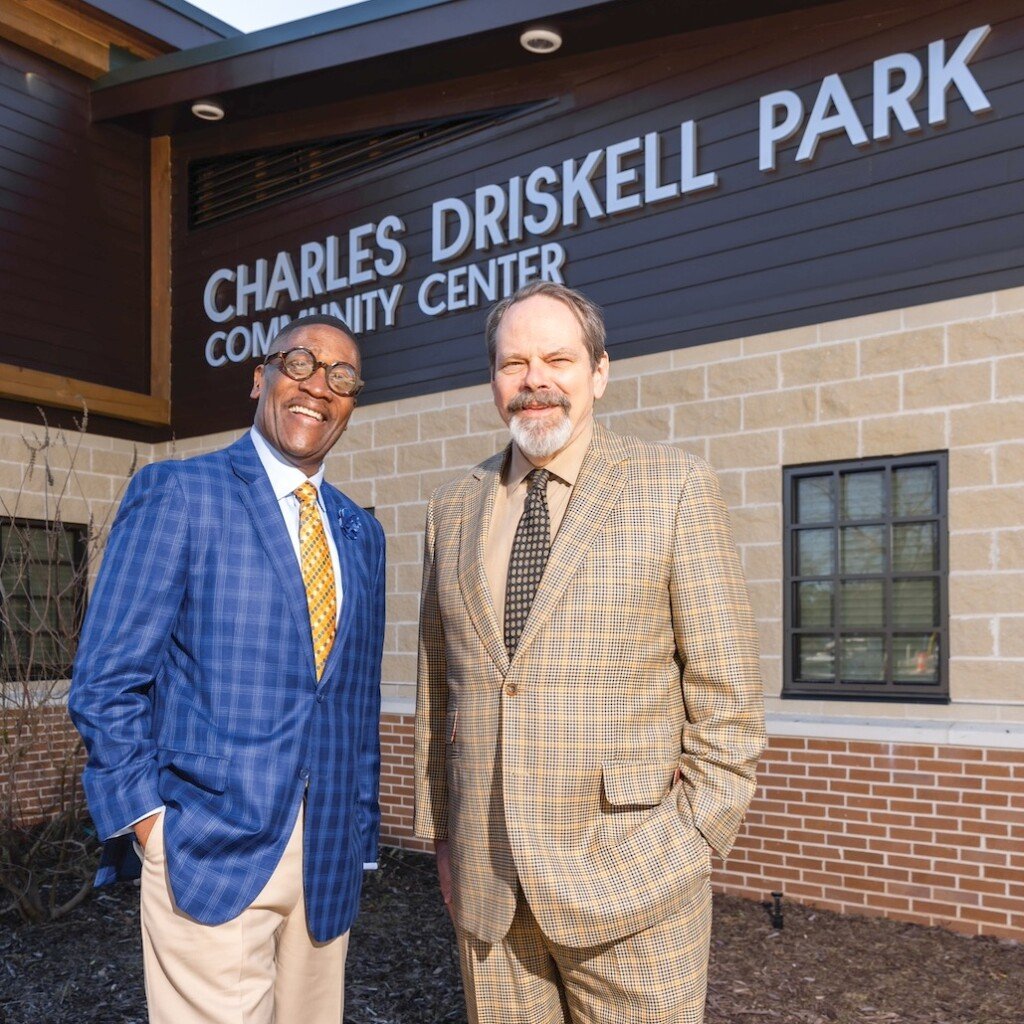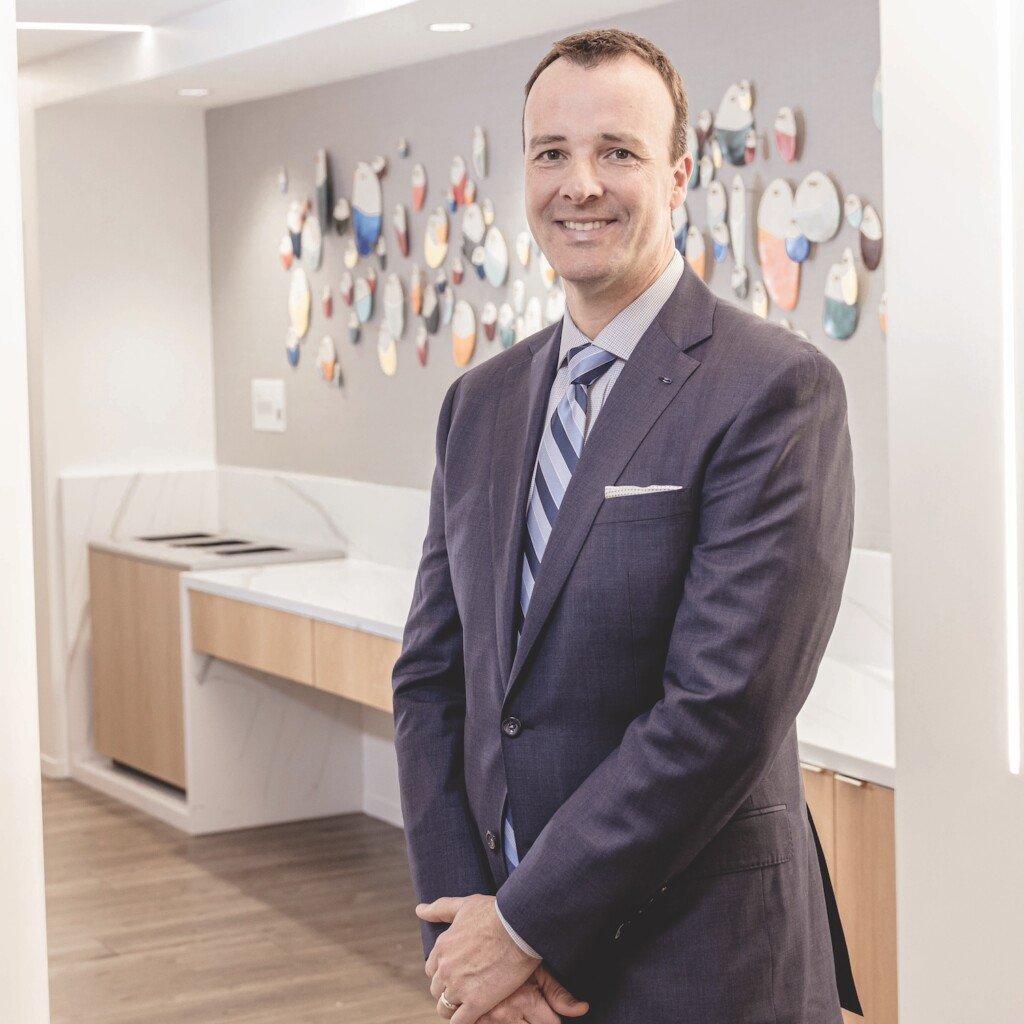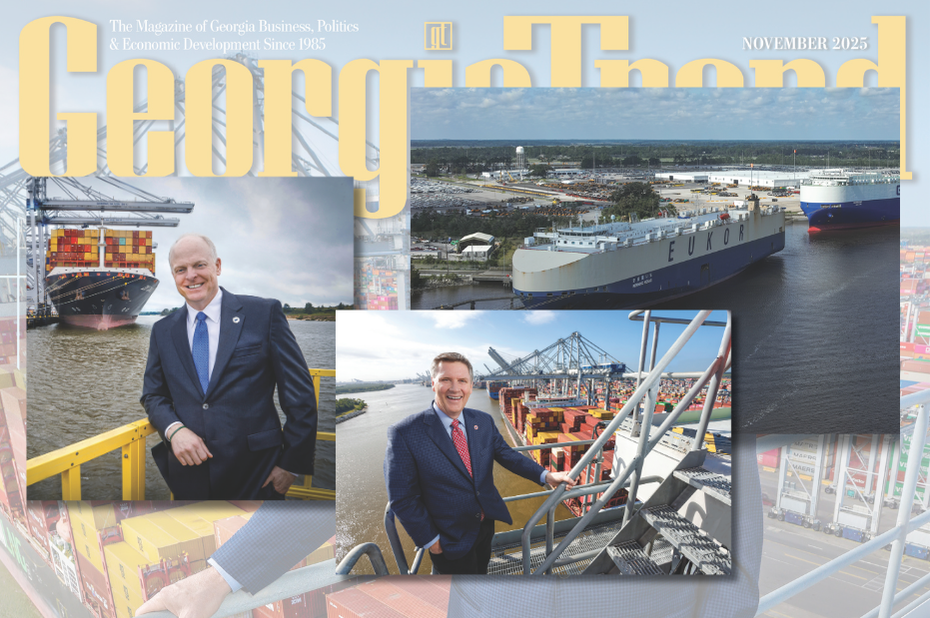Small but Mighty
Georgia's small businesses are a vital part of the economy.

Custom-Made Instruments: Howard Paul, president and CEO of Benedetto Guitars. | Photo credit: Ben Rollins
Georgia is home to its share of Fortune 500 companies – 35 have headquarters here. That’s a testament to the state’s status as No. 1 in the country for business. But small businesses are what really keep the economy humming here and around the nation. According to the U.S. Small Business Administration, there are more than 33 million small businesses in the U.S. – accounting for 99.9% of all the nation’s businesses. They employ 61.7 million people, almost half of all private-sector employees.
In Georgia, there are more than 1 million small businesses, defined by the Georgia Department of Economic Development as being independently owned and operated and having fewer than 300 employees or bringing in less than $30 million in annual gross receipts.
The owners of these next four small businesses around the state offer unique and important goods and services. And while each has a different story to tell, they all agree that Georgia is a great place to put down roots.
Playing for Success
Benedetto Guitars • Savannah • 9 employees

Worldwide Reputation: Robert Benedetto, who retired in 2015, made guitars by hand for almost 50 years. Benedetto Guitars carries on the tradition in Savannah. | Photo credit: contributed
People come to Savannah for a particular combination of things they can’t find anywhere else: history, architecture, gentility and a sultry vibe. These very qualities make the city the perfect home for Bene- detto Guitars – custom, handmade instruments played by the finest jazz guitarists in the world.
Robert Benedetto began making the high-end, bespoke guitars in New York in 1968. Howard Paul, the company’s president and CEO, was working as a jazz guitarist when he met Benedetto and ordered his first Benedetto guitar in 1995. Paul had just left the Army, was married to an attorney in Savannah and had gotten a day job at Chatham Steel, meaning he could finally afford a custom instrument.
“Back then, his least expensive guitars were almost $12,000,” Paul says. “And it was about a two-and-a-half- to five-year wait for one. I made my deposit and got in the line.”
He also became friends with Benedetto. In 2006, Benedetto approached Paul about establishing a Benedetto Guitars workshop that would be licensed to create the custom instruments. Paul agreed, so long as the company would be in Savannah, “because my attorney wife wasn’t going to move.”
Benedetto agreed to the move. Now, the Savannah company has nine employees, including master luthiers who build 80 to 90 guitars a year. Entry-level professional guitars cost between $6,000 and $8,500, while hand-carved guitars start at $12,500 and go up to $40,000. The guitars are all made to order. Delivery time is 10 to 12 months.
As with small businesses everywhere, labor is the biggest challenge.
“The quality of our instruments commands that we do things in a very traditional manner. And the only way we can do that is to get employees who have, first of all, a love for guitars,” Paul says. They also must be experienced luthiers.
As Paul looks to the future of this unique company, he’d like to begin buying back and reselling used Benedetto guitars. “While it’s a tiny, little company, it’s got a worldwide reputation. If we had used instruments to sell or more new instruments to sell, they would go out the door as fast as we could hang them on hooks, I think.
“We’ve gotten a lot of attention for a very small company,” he continues, “because we are absolutely steadfast to the tradition of building these instruments and because the last three generations of great jazz guitarists all play our guitars.”
Under the Georgia Sun
Muscadine Products Corp./Paulk Vineyards • Wray • 25 full-time employees •200-300 seasonal employees

Family Business: Chris Paulk is the president and CEO of Muscadine Products Corporation, the sister company of Paulk Vineyards, which was started by his grandfather. | Photo credit: David Parks
South Georgia might not be the first spot that comes to mind when the discussion turns to vineyards. The heat, humidity and abundance of sunshine aren’t typically conditions for grapes to thrive – unless they’re muscadines, grapes that are native to the Southeast.
“Like good Southerners, they don’t like it cold,” says Chris Paulk, president and CEO of Muscadine Products Corp. (MPC), and the sixth generation working on land that is home to the world’s largest muscadine vineyard, Paulk Vineyards in Wray.
The Paulk family – Chris, his father and his uncle – run the sister companies, MPC and Paulk Vineyards. The vineyards produce grapes that are sold fresh, while MPC takes some of those grapes and produces powder, juice and wine.
The vineyard began in the late 1960s, when Paulk’s grandfather Jacob Paulk planted his first muscadines. He’d been a traditional row farmer, growing peanuts, cotton and corn.
“His goal was to diversify the farming operation and to try growing something that was native to the South, that was working with Mother Nature, not against it,” Paulk says. “He started off growing muscadines on five acres. Today we’ve got about 800 acres of muscadines.”
His father and uncle sell most of the fruit fresh in August and September to grocery stores in Georgia and as far away as Toronto, Dallas and Key West, Florida.
Paulk didn’t intend to join the family business. But after graduating from Georgia Tech, Paulk was lured back to the family farm in 2002 by his grandfather, with the idea of starting MPC to make and sell products from grapes and from the seeds and skins, which, it turns out, are high in antioxidants.
“We started off with juices and jellies,” Paulk says. “We still bottle muscadine juice, sell some muscadine jellies, traditional food products. And then we found out muscadines are very healthy for you. They have more antioxidants than other grapes, and many, many other fruits.”
The family worked with the University of Georgia on ways to capture the seeds and skins for use in other products. “Now we make about half-a-dozen different powders from the skins and seeds of the muscadines,” Paulk says. “We have cold-pressed seed oil. We make extracts, which are super concentrated, soluble versions of those antioxidants. And we sell those ingredients. We have a small line of health products under the brand Nobility. Most of my business is selling those ingredients for health-food products and dietary supplements and even cosmetic ingredients.”
It’s a business line that stretches around the United States and may soon be going as far as East Asia, where Paulk recently went on a scouting trip.
“Here in the United States, we like to treat what went wrong with our health,” he says. “Over there, my understanding is they want to prevent anything from going wrong. So they’re very much into health products.”
In 2017, the family began producing and selling muscadine wine.
“We’ve been producing wine for going on seven years,” Paulk says. “We have a little retail store and do wine tastings and host events.”
They have also put together the South Georgia Wine Festival for the last five years, inviting other South Georgia wineries to participate, to show that wine can be made in that region as well as in North Georgia. All wineries south of Atlanta are invited to the festival, which offers a great way to taste local wine in a region where the next closest vineyard is 40 miles away, he says.
Building a Positive Community
Shear Structural • Chamblee • 20 employees

Unique Perspective: Shear Structural co-founders and managing partners Holly Jeffreys, Karen Jenkins, and Malory Atkinson. | Photo credit: Ben Rollins
According to the Small Business Administration, women own more than 12 million businesses and employ more than 10.1 million people in the United States. Georgia ranks fifth in the nation for the number of women-owned firms and second in the pace of growth of those firms. A 2022 report by the U.S. Census Bureau noted that women own 38,798 firms in the state, or 22.1% of Georgia businesses, employing more than 310,000 people.
That puts Shear Structural, the only women- owned structural engineering firm in the state, in good company. Begun in 2017 by co-founders and managing partners Karen Jenkins, Holly Jeffreys and Malory Atkinson, Shear Structural brings a unique and diverse perspective to the traditionally male-dominated world of structural engineering. It’s a perspective that’s delivering success: The firm had $4 million in revenue last year and was named a 2023 Small Business Rock Star by the Georgia Department of Economic Development.
So, what does a structural engineer actually do?
“We make vertical structures that stand up to any force – so wind, water, soil,” Atkinson says. “That’s how we think about it. People are mostly familiar with architects. If you think about a building like a human body, an architect is going to design what that human body looks like, how tall it is, how thin or fat it is, eye color, hair color. As a structural engineer, we design the skeleton to make that body function.”
The business started after Atkinson had left the industry to work at a mobile app startup. “While I was there, it was interesting to be at a technology startup, high-energy, fast-paced space, and see all this exciting stuff happening,” she says.
But she couldn’t get the built environment out of her head and began to wonder how she could bring that kind of excitement to “the spaces and places that people enjoy interacting with every single day.”
She contacted Jenkins, who was working with Jeffreys at the time. “And it just worked out that we wanted to do something a little bit different in structural engineering and create a company that was really focused on working on projects that positively impacted the community,” she recalls.
That focus is woven throughout the business’s core values, Atkinson says.
“Our core values are aligned with positive community impact, having heart in what we do, so really, actually caring about the work that we do and promoting a diverse workplace,” she says. “Obviously, being Georgia’s first and only women-owned structural engineering company, that level of diversity in itself at the ownership and leadership level was a real draw for staff and for our team.”
It also has become a real draw for clients, she says, because as a diverse team, they bring diverse perspectives to projects.
Those projects include parks, hospitals and other healthcare facilities, schools, libraries, fire stations and municipal buildings. The team has worked on the Ponce City Market food hall expansion in Atlanta, the University of Georgia dining hall expansion and the first new Department of Corrections facility in the state in more than 20 years. While a prison in South Georgia might not seem to provide a positive community impact, this one includes a focus on improved conditions for people inside.
“That might not be very exciting,” Atkinson says, “but it does replace a really dilapidated facility and provides a need for the state.”
In addition to taking on meaningful work, the women of Shear Structural have signed onto Go Beyond Profit, a pledge to donate 10% of profits back to the community.
“Signing that pledge felt like putting our money where our mouth is,” Atkinson says. “We also do at least one completely pro bono project a year.” In 2023, that was renovations to the Chamblee Boys and Girls Club.
In addition, they provide discount work to nonprofit organizations and work to promote engineering to girls, women and people of color.
“We created the first-ever lifetime endowment fellowship for women studying structural engineering at Georgia Tech,” she says. “I think our story is resonating. People want to do good. And they want to see good buildings come to their communities.”
All Who Wander
Wander North Georgia • Clayton and Tallulah Falls • 16-17 employees

Love of the Outdoors: Josh Brown, co-owner of Wander North Georgia, at the company’s store in Clayton. | Photo credit: Ben Rollins
What started as a blog to let family and friends know what they were up to in North Georgia has become a Small Business Rock Star in Rabun County. Josh Brown and his wife Alex began posting in 2015 about restaurants, shops and trails after moving to the area from Athens. In 2016, they began posting on social media and soon had thousands of followers eager to see photos and videos of the region. When they met Jake and Courtney Scott, another local couple, the idea of Wander North Georgia as a business was born.
Today, Wander is a retail store – two stores, actually – and so much more. The shops, in downtown Clayton and Tallulah Falls, carry locally made products, sustainable goods and outdoor gear. Though the product mix may sound like other outdoor stores in adventure spots around the country, the Browns and Scotts have done things differently – primarily with a focus on community – since the beginning.
COVID-19 disrupted Wander’s operations, as it did for virtually every business. But after being closed for more than two months, the owners doubled down on their determination to run a successful, small, values-based business.
“We’re a small business in a changing retail landscape,” Brown says. “We’re trying to not compete against the big guys. We’re just trying to show that we’ve got some stuff that’s interesting.”
In addition to products, that interesting stuff includes events such as cleanup hikes in the area, in-store pottery workshops and kids’ story time, which are other ways of taking care of their community – customers and employees. In addition, Wander North Georgia offers paid sick, maternity and paternity leave to full-time employees, and it will take some products back without a receipt.
“It’s possible to make money and take care of your people, take care of your community, take care of the environment,” Brown says. “We never intended to have a shop. So when it started to become a thing, and we opened a little online store, and it started getting some attention, we started selling some stuff. We just … took the money and the profits from that, and we bought beer, and we would throw parties. It was always the spirit of – it’s not really a business, this is just an extension of our lifestyle.”
While the company has grown and matured, it’s with that same mindset. “At the end of the day, we realized we had something, and we realized how lucky and fortunate we were to stumble into that. It was like … we can do this whatever way we want. Why not do it the way that we always wanted to do when we were working for someone else? There was no one to say we can’t give paid sick time to our staff, or we can’t give … a month of maternity … and paternity leave.”
In terms of supporting customers, Brown says the people at Wander are determined to meet customers where they are in terms of skill level and love of the outdoors.
“One of the things I’m proud of in our stores, customers come in from all walks of life,” Brown says. “Our goal is to have a little something for everybody, whether you’re the 80-year-old grandmother that’s coming in or the 3-year-old kid. We want everybody to come into our store, whether they buy anything or not, to feel good, Southern hospitality. We want them to walk away feeling a little bit better about nature, feeling a little bit better about their community, feeling a little bit better about where they’re spending their hard-earned dollars.”






